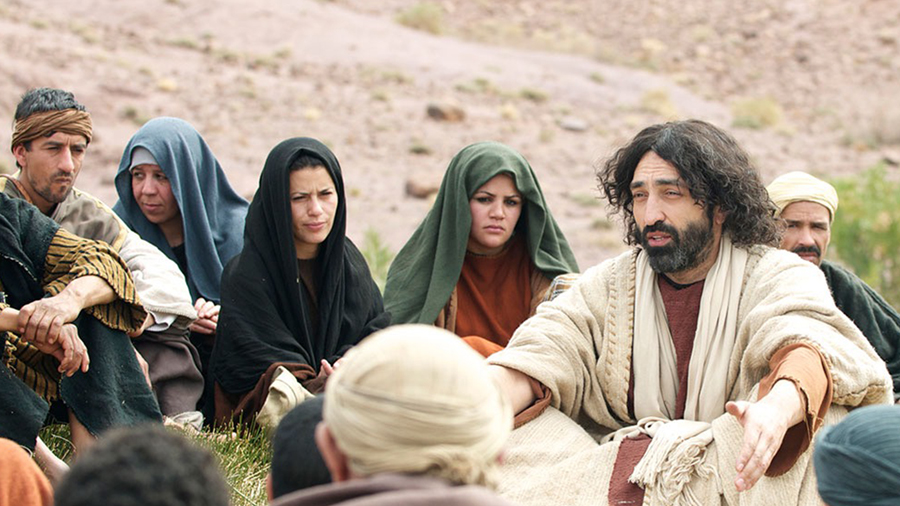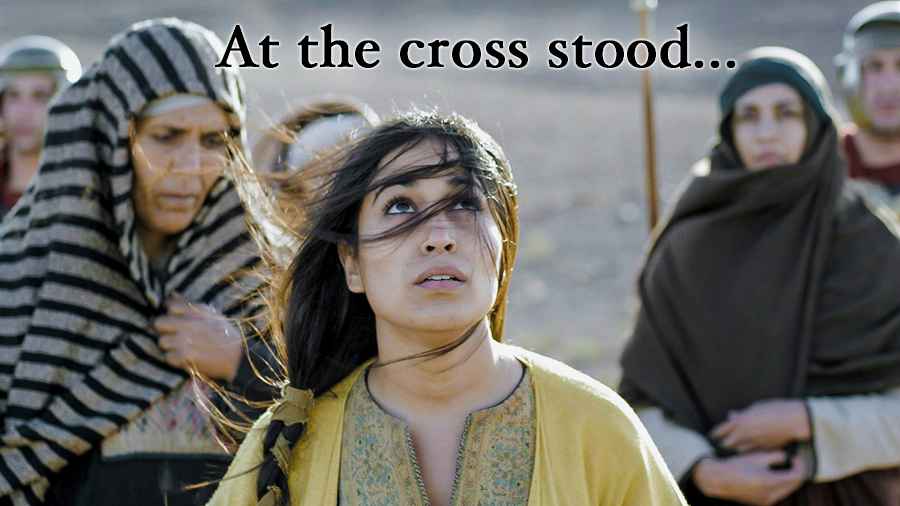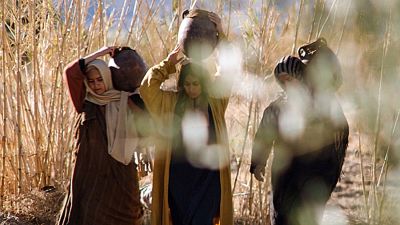After this, Jesus traveled about from one town and village to another, proclaiming the good news of the kingdom of God. The Twelve were with him, and also some women who had been cured of evil spirits and diseases: Mary (called Magdalene) from whom seven demons had come out; Joanna the wife of Chuza, the manager of Herod's household; Susanna; and many others. These women were helping to support them out of their own means (Luke 8:1-3).
This seemingly innocuous transitional passage in the gospel of Luke is one of those hidden gems we often overlook in our reading. Other gospel writers tell us about this vital group of women during their account of Jesus' Passion (Matthew 27:55; Mark 15:41). They emphasize that these women were the only ones faithfully present with Jesus through his passion, resurrection, and Pentecost (Matthew 27:55, 28:5; Mark 15:41, 55; Luke 23:27, 49, 24:10, 22, 24; Acts 1:14).

Why is this important?
By overlooking this gem, and especially the phrase "and many others" who were women, we miss several realities about the importance of women in the ministry of Jesus and the proclamation of the good news in the early church. Here are three implications of these three verses.
First, Jesus' ministry was largely supported financially by women, some of them were women of prominence. This reality is also reflected in Luke's mention of "prominent women" being important in early church plants (Acts 17:4, 12), typified by Lydia in Philippi who led her household (probably both from her family and employees) to Christ, hosted the mission team, and provided the place of meeting for one of the early house churches in Philippi (Acts. 16:14-15, 40).
Jesus' openly known financial support from women was quite noteworthy in a Jewish setting. Luke's description reminds us of the scrupulous character Jesus displayed with women and the value he placed upon women in his ministry. Any indiscretion, abuse, or hint of anything unseemly would have become easy fodder for his critics who were always looking for something to use against him (Luke 6:7, 22:2, 23:2, 10; John 7:1, 19, 25, 8:40, 11:53). In light of the blatant abuse of women by men in power in our day, Jesus' example and lack of criticism shine like beacons illuminating the way for the respectful treatment of women by those in power!
Second, these faithful women were part of Jesus' ministry and teaching. Were they among those Jesus sent out to proclaim that the kingdom of God was near (Luke 10:1-17)? We can't be sure, but that reality sure seems likely because of their presence throughout the ministry of the Lord. Even more, their presence through every phase of the Passion - unlike the apostles who forsook Jesus and hid (Mark 14:50; John 20:19, 26) - and their presence at Pentecost suggests that they would have part of the coming of the Spirit and the proclaiming done on Pentecost (Acts 2:1-22).
That Peter's quotation from Scripture twice emphasized that both men and women would proclaim the good news and prophesy as the apostles did on Pentecost sure seems to make that implication a near certainty (Acts 2:16-17). Quite possibly, the faithful accompaniment of Jesus by this group of women may be why Paul later listed Junia (a feminine name) as one of the apostles (Romans 16:7 - the Greek is literally, "in the apostles" - ἐν τοῖς ἀποστόλοις). Incidentally, the women members of this group supporting Jesus would also likely fit the requirements of an apostle given by Peter (Acts 1:21-22), lending support to Junia's key role as a woman "sent out" on mission.

Third, because we missed this little gem about these important women and "many others" who were women that accompanied and proclaimed Jesus, we also miss other important women in the New Testament. One group, Philip's daughters, prophesied before Paul and the representatives taking the gift from Gentile churches to the Jerusalem church (Acts 21:8-9; Romans 15:26-31; 1 Corinthians 16:1-3; 2 Corinthians 8:20, 9:5). Another pair of important women in the growth in the church in Philippi were Euodia and Syntyche (Philippians 4:1-2). These two women had been partners with Paul in evangelizing Philippi.* Euodia and Syntyche quite possibly led many in the Philippians church to Christ, so their quarrel with each other threatened to split the church (Philippians 4:2-3).*
As our world culture appears to be moving steadily away from godliness and becoming more hostile to the Christian faith, we need every Spirit-gifted person to fulfill the roles God has called each of them to perform. Our mission field increasingly resembles the people, challenges, and hostilities that the early church faced. So, "all hands on deck" is not just a sailing expression; it must reflect our approach to ministry in the Kingdom of God. Luke shows us in his gospel of Luke and the book of Acts the inclusiveness of Jesus' ministry, the value of many different kinds of people to spreading the gospel, and the openness of the apostles to using men and women of all races and cultures to share the good news of Jesus with the world (Galatians 3:26-29). Hopefully, by seeing the God-sparkle in this often overlooked gem, we will follow their example and do the same!
If we are truly JesuShaped people, we must inspire each other to serve and affirm each other’s ministry, as Jesus did with both women and men in his own ministry!

Special thanks for the use of images related to Jesus' ministry from The Lumo Project and Free Bible Images for use on this week's post.












Comments
Have thoughts on this article? Leave a comment